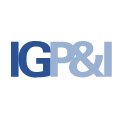 The Protection and Indemnity Clubs, formed by ship owners to secure cover for risks which are outside the normal marine policy are generally known as P & I Clubs. Huge financial burden or risk is involved in the shipping business; in connection with the cost of the ship, value of cargo, voyage commitments, crew etc. The sea is a potential danger zone where loss of life and property cannot be predicted. Therefore, Insurance and re-insurance Companies or hull underwriters restrict their liability to the extend they are safe in providing cover. To solve the problems, groups of ship-owners formed themselves into mutual associations and agreed to share each other’s claims. Thus ship-owners provide themselves a security platform to mitigate any sudden financial setback in the course of their business on the high seas.
The Protection and Indemnity Clubs, formed by ship owners to secure cover for risks which are outside the normal marine policy are generally known as P & I Clubs. Huge financial burden or risk is involved in the shipping business; in connection with the cost of the ship, value of cargo, voyage commitments, crew etc. The sea is a potential danger zone where loss of life and property cannot be predicted. Therefore, Insurance and re-insurance Companies or hull underwriters restrict their liability to the extend they are safe in providing cover. To solve the problems, groups of ship-owners formed themselves into mutual associations and agreed to share each other’s claims. Thus ship-owners provide themselves a security platform to mitigate any sudden financial setback in the course of their business on the high seas.

A P & I Club functions as a combination of an insurance company, a law firm and a loss adjuster. Precisely it protects and indemnifies the member. The ship owner and the Club works together to handle every aspect of a casualty; from finding experts and contractors to manage the casualty, face legal proceedings and settlement of liability claims. Clubs cover a wide range of liabilities including personal injury to crew, repatriation of seamen and passengers on board, cargo loss and damage, oil pollution, collision related damages, wreck removal and dock/jetty/pier damage. Clubs also provide services to its members on claims, legal issues and loss prevention, and often play a leading role in the management of casualties.
These clubs that took shape in the middle of the nineteenth century have now developed into thirteen underwriting member clubs of the ‘International Group of P&I Clubs’ (‘the group’). Between them, they provide liability cover for approximately 90% of the world’s ocean-going tonnage. Each Group club is an independent, non-profit making mutual insurance association, providing cover for its ship-owner and charterer members against third party liabilities relating to the use and operation of ships. Each club is controlled by its members through a board of directors or committee elected from the membership.

One of the main roles of the Group is coordinating the operation and regulation of the club’s claim-sharing agreement (the Pooling Agreement). All qualifying claims in excess of $7 million are shared between clubs in accordance with the terms of the Pooling Agreement by which the clubs reinsure each other for claims in excess of $7 million. Much of the Group’s work involves defining and refining the scope of cover for pool claims and the rules and guidelines under which claims are shared. This claim-sharing agreement is underpinned by a very extensive market reinsurance programme which the Group clubs arrange.
The Group also provides a forum for Group clubs to develop common policy and promote ship-owners’ interests in relation to liability and insurance issues. The Group provides an effective voice for the members of the individual clubs to speak collectively on important industry issues, for example on international conventions, treaties and legislation affecting ship-owners’ liabilities and related insurance matters. Again, it provides a useful forum for sharing information on general issues such as oil pollution and personal injury as well as current issues such as maritime security, places of refuge for ships in distress, carriage of particular cargoes etc.

The Club’s ability to deal with casualty of any magnitude is directly proportional to the ability of the members to pay up. The money which a member draws, to set off the damages caused, has to be replaced sooner or later. The more the members receive from the P & I Club, the more he must pay back, to ensure the organisation remain solvent. Calls are made from time to time by the Clubs to its members to replenish their funds. When and if severe losses occur repeatedly, the calls made by the clubs simultaneously increases. These days, the Admiralty courts are slapping fines in millions for environmental damage caused due to oil spillage. Besides that, the expenses for damage assessment, restoration and clean-up operations are also very high. Under such circumstances and when the Insurance Companies withdraw to their own hood, P & I Clubs can provide succour to its members.
Share it now







if any claim to be arises for seafarer,how could a indivisual can approach to P & I club.
COULD U PLEASE TELL THAT IF A PERSON SIGN OFF DUE TO MEDICAL GROUND WATS THE ROLE OF P&I CLUB?????????????????????
its most wanted for students & wishes the team good future
apart from this information , if you provide details on , how(procedures) and what amount of claims an injured person should seek from the clubs and companies . Because thats the event what the P & I clubs are made for. If this info is available a common man can think of approaching P&I
Good article. SOme more detail will be beneficial.
its most wanted for students..
very good
Few PROMINENT names of P & I clubs could be added.
The article was short but gives the reader a fair idea on how P&I Clubs operate.
Dealing with P&I will take a long time and I think one article will not clear the concept. Anway, it was an OK try.